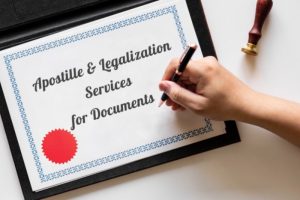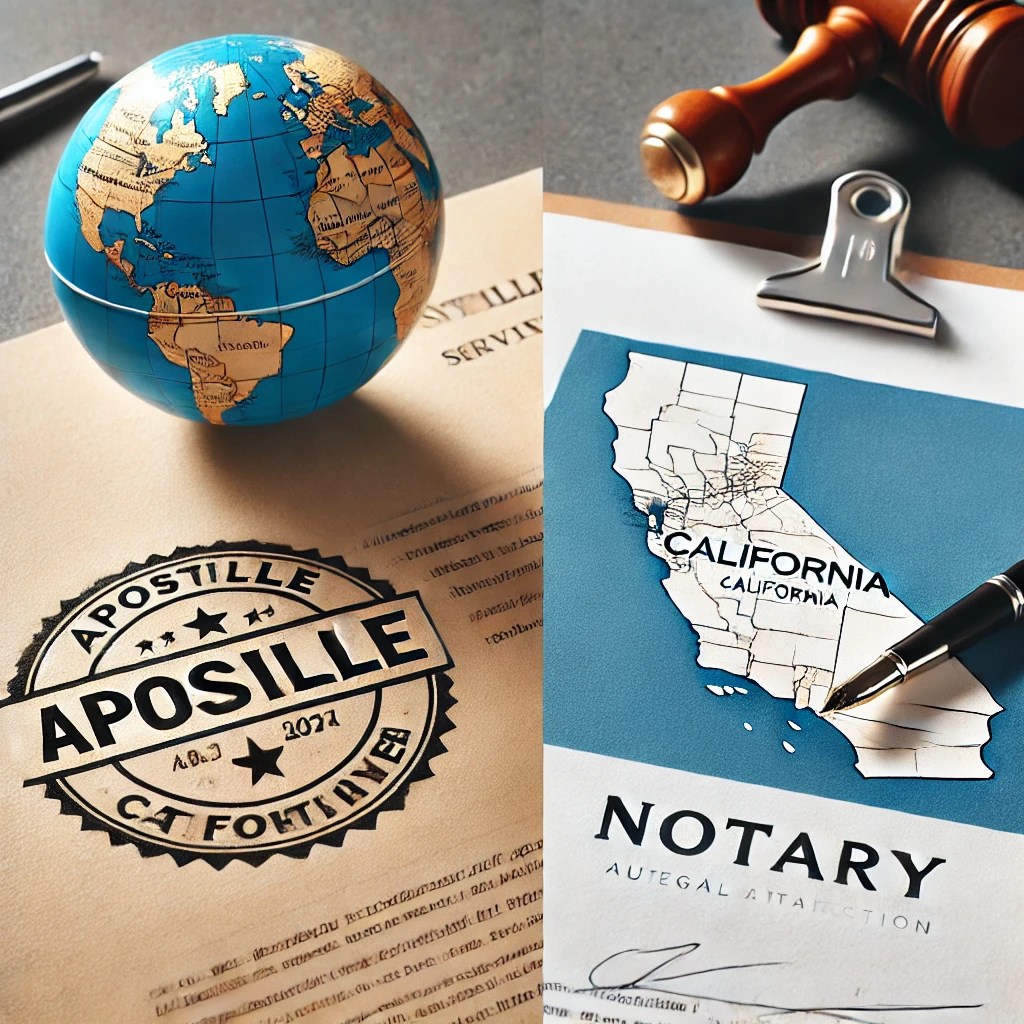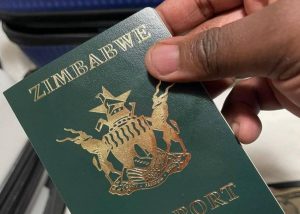In South Africa, the two main methods of verifying public documents and vital records for use overseas are apostille and notarisation. You may come across the terms ‘apostille’ and/or ‘notarisation’ if you are buying property abroad, applying for a visa or conducting international business. While both play a vital role in ensuring the legitimacy of documents, they are distinctly different processes, each designed for specific purposes.
The terms ‘apostille’ and ‘notarisation’ refer to distinct processes involved in authenticating and verifying documents for formal use overseas. The goal of getting a document apostilled or notarised is to prove its credibility. Consequently, individuals with limited knowledge of these terms often find it challenging to discern the differences between them.
Consequently, many people have questions about the differences between apostille and notarisation services in South Africa. These range from how to use both services, to their importance and similarities and differences, and when to use them. Read this blog post if you’re curious to find out the answers. We’ll provide you with all the information you need about notarisation versus apostille services in South Africa.
What is Document Notarisation in South Africa?
In South Africa, notarisation confirms that a document is genuine and can be trusted within the country. Having a document notarised is often required when preparing South African documents for apostille authentication and legalisation for use overseas.
There are two ways in which document notarisation can be carried out. In the first method, a notary public witnesses a signature on a document, such as a power of attorney or affidavit, and then certifies that the signature is genuine. The notary public notarising your document will sign it and add their embossed seal to certify that they witnessed the signature.
The second method involves the notary public making a copy of the original document. In this case, the signature and embossed seal will appear on the copy instead of the original document.

What is an Apostille in South Africa?
An apostille is a form of international certification used in countries that are signatories to the Hague Apostille Convention. It proves that a notarised or government-issued document is valid for use abroad.
Several countries, including South Africa and China, as well as most European countries, have ratified the 1961 Hague Apostille Convention, which provides for the simplified certification of public documents, including notarised documents, for use in countries that have joined the convention. Under this system, a Competent Authority of the country where the document originates issues a single Apostille Certificate after verifying the document, and the document is recognised in the country of intended use (provided that the country is part of the convention). No further legalisation by an embassy or consulate is required.
Common Notarisation and Apostille Needs
Personal Documents
- Birth certificate
- Power of Attorney witnessing
- Affidavits and declarations
- Academic certificate certification
- Travel and immigration documents
- Guardian appointment documents

Business Documents
- International business contracts
- Company establishment papers
- Board resolutions
- Certificates of incorporation
- Property transaction documents
Family Matters
- Adoption documentation
- Travel sponsorship papers
- Study abroad documents
- Residency application support
What is the difference between Apostille vs Notarisation in South Africa?
| Feature | Notarisation (South Africa) | Apostille (International) |
| Purpose | Verifies identity and signatures | Certifies documents for use abroad |
| Where It Applies | Within South Africa | Countries in Hague Convention |
| Authority Involved | Notary Public | DIRCO/ High Courts |
| Process | Signature + seal by a Notary Public | Apostille certificate attached to the document |
| Cost and Time | Varies, generally 1 to 2 days | Varies, generally 1 to 5 days |
When Do You Need Notarisation, Apostille, or Both?
The requirements vary depending on your document type, destination country and local laws.
Scenarios for Domestic Use
If you are dealing only with local authorities or institutions, notarisation may suffice. For example:
- Signing a lease agreement
- Certifying academic records for a local employer
- Verifying identity for domestic transactions
Scenarios Requiring International Recognition
You will likely need an apostille if the document is for use abroad, particularly in a Hague Convention country. Examples include:
- Studying overseas and presenting academic qualifications
- Opening a foreign bank account
- Applying for dual citizenship
- Managing property abroad

Country-Specific Requirements
Some countries are not part of the Hague Convention. In these cases, your document may require embassy legalisation in addition to an apostille. In some countries, including those that are party to the Hague Convention, a sworn translation may be required, which usually has the same legal status as a notarised translation.
Examples:
- Spain: Although party to the Hague Convention, sworn translation may be required in addition to apostille legalisation for certain legal purposes in Spain.
- UAE or Viet-Nam: Not party to the Hague Convention .These countries often require both apostille and embassy legalisation.
Need translation plus notarisation or apostille?
Official documents that are to be translated often require notarisation and/or apostille. Notarisation is sometimes required for original documents and is also sometimes needed after a translation has been completed and certified.
In this case, its purpose is to confirm that the translation certification provided by the translation supplier is genuine and legally valid. Meanwhile, an apostille or legalisation may be required before or after the translation (or both) – if it is carried out before the translation, it verifies the authenticity of the original document; if it is carried out afterwards, it verifies the notarisation certificate. The requirements vary depending on the specific purpose and country for which the translation is needed.
Global Apostille at Your Service!
To ensure the legality of your documents internationally, they must be validated with a South African apostille. At Global Apostille, we offer an express notarisation, DIRCO and High court apostille service to help you obtain your documents quicker. Our service is the fastest in Johannesburg, Pretoria, and the Gauteng area. For more information on our services please feel free to contact us. Tel: 012 348 3134| Mobile: 081 347 6060 | Email: info@apostillelegalisation.co.za









